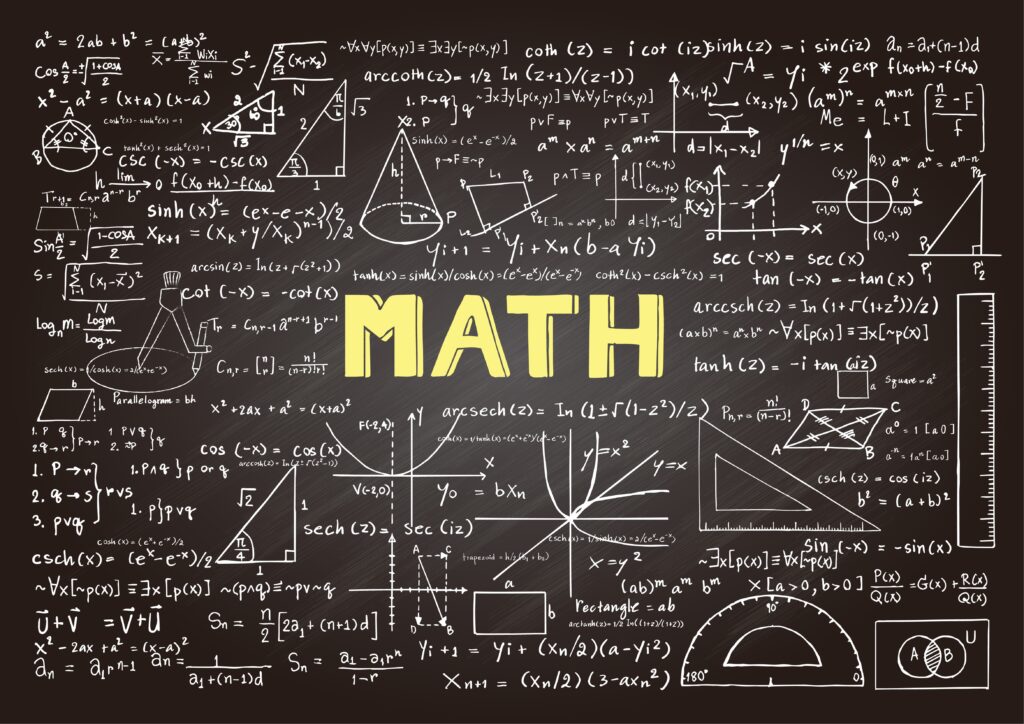Mathematics
mathematics and its uses :-
Mathematics is a field of study that deals with the properties and relationships of numbers, quantities, shapes, and patterns. It involves the use of symbols, numbers, and mathematical operations to solve problems, analyze data, and make predictions. Mathematics is a universal language that provides a precise and logical framework for understanding the world around us.
Here are some key aspects of mathematics and its applications in daily life:
1. Problem Solving:
- Mathematics teaches critical thinking and problem-solving skills. It equips individuals with the ability to analyze situations, identify patterns, and formulate solutions.
2. Quantitative Reasoning:
- Mathematical concepts enable individuals to interpret and analyze quantitative information. This is crucial in making informed decisions in various aspects of life, such as budgeting, finance, and data analysis.
3. Everyday Finances:
- Basic arithmetic is essential for managing personal finances. It involves tasks like budgeting, calculating expenses, understanding interest rates, and making financial decisions.
4. Measurements:
- Mathematics is fundamental to measurement and units. It helps in cooking (measuring ingredients), construction (measuring dimensions), and various other activities that involve quantifying.
5. Time Management:
- Concepts of time and scheduling involve mathematical thinking. Calculating time durations, planning schedules, and meeting deadlines all rely on mathematical principles.
6. Technology and Engineering:
- Mathematics is the foundation of various technological advancements and engineering applications. It is crucial in designing and building structures, developing algorithms, and advancing scientific research.
7. Statistics and Probability:
- Understanding statistical concepts helps in interpreting data, making predictions, and drawing conclusions. Probability concepts are applied in risk assessment and decision-making.
8. Geometry:
- Geometry plays a role in understanding spatial relationships and shapes. It is used in architecture, design, map reading, and navigation.
9. Medical Sciences:
- Mathematics is used in medical fields for dosage calculations, medical imaging, statistical analysis of research data, and modeling biological processes.
10. Computer Science:
- Algorithms and mathematical principles underpin computer science. Mathematics is crucial for coding, cryptography, and developing software applications.
11. Economics:
- Mathematical models are employed in economics to analyze market trends, optimize resource allocation, and understand economic phenomena.
12. Natural Sciences:
- Mathematics is the language of physics and other natural sciences. It is used to describe and analyze physical phenomena, conduct experiments, and formulate scientific laws.
In essence, mathematics is an integral part of our daily lives, influencing a wide range of activities and decisions. Its applications extend beyond academic settings, permeating various fields and contributing to the advancement of knowledge and technology.

List of Exams in which Mathematics are important:-
Mathematics is a crucial subject in various exams across different academic levels and fields. Here’s a list of exams in which mathematics plays a significant role:
1. School and College Exams:
- High School Mathematics Exams: For various education boards, including CBSE, ICSE, State Boards, etc.
- College Entrance Exams: SAT, ACT, and other entrance exams that may include a mathematics section.
2. Engineering Entrance Exams:
- Joint Entrance Examination (JEE) Main and Advanced: For admission to top engineering colleges in India.
- BITSAT (Birla Institute of Technology and Science Admission Test): For admission to BITS Pilani and its campuses.
- VITEEE (VIT Engineering Entrance Examination): For VIT Vellore, a premier engineering institute.
3. Medical Entrance Exams:
- National Eligibility cum Entrance Test (NEET): For admission to medical and dental colleges in India.
4. Management Entrance Exams:
- Common Admission Test (CAT): For admission to Indian Institutes of Management (IIMs) and other top management institutes.
- Xavier Aptitude Test (XAT): For admission to XLRI and other management programs.
5. Civil Services Exams:
- Union Public Service Commission (UPSC) Exams: Mathematics as an optional subject in the Civil Services Examination.
6. Defense Exams:
- National Defense Academy (NDA) Exam: Mathematics is part of the written examination.
7. Graduate Aptitude Test in Engineering (GATE):
- For admission to postgraduate programs and recruitment in engineering, technology, and science.
8. Indian Statistical Service (ISS) Exam:
- Conducted by the UPSC, it includes a paper on Statistics, which involves mathematical concepts.
9. Graduate Record Examination (GRE):
- Required for admission to graduate programs (Master’s and Ph.D.) in various disciplines globally.
10. Financial and Actuarial Exams:
- Chartered Financial Analyst (CFA) Exam: Includes quantitative methods.
- Actuarial Science Exams: For professional certification in actuarial science.
11. Competitive Exams for Government Jobs:
- Staff Selection Commission (SSC) Exams: For various government jobs that may include quantitative aptitude.
- Railway Recruitment Board (RRB) Exams: For jobs in the Indian Railways.
12. International Mathematics Olympiad (IMO):
- For students interested in mathematical problem-solving at the international level.
13. Graduate Management Admission Test (GMAT):
- Required for admission to graduate management programs globally.
14. Indian Institutes of Technology (IIT) Exams:
- Graduate Aptitude Test in Engineering (GATE): Also used for IIT admissions.
- Joint Admission Test for M.Sc. (JAM): For M.Sc. admissions in IITs.
15. Common Law Admission Test (CLAT):
- For admission to undergraduate and postgraduate law programs in India.
16. Indian Statistical Institute (ISI) Entrance Exams:
- For admission to various undergraduate and postgraduate programs.
These are just a few examples, and the importance of mathematics can be found in a wide range of exams across diverse fields and levels of education. The specific mathematical topics and difficulty levels may vary depending on the exam and the intended field of study or profession.